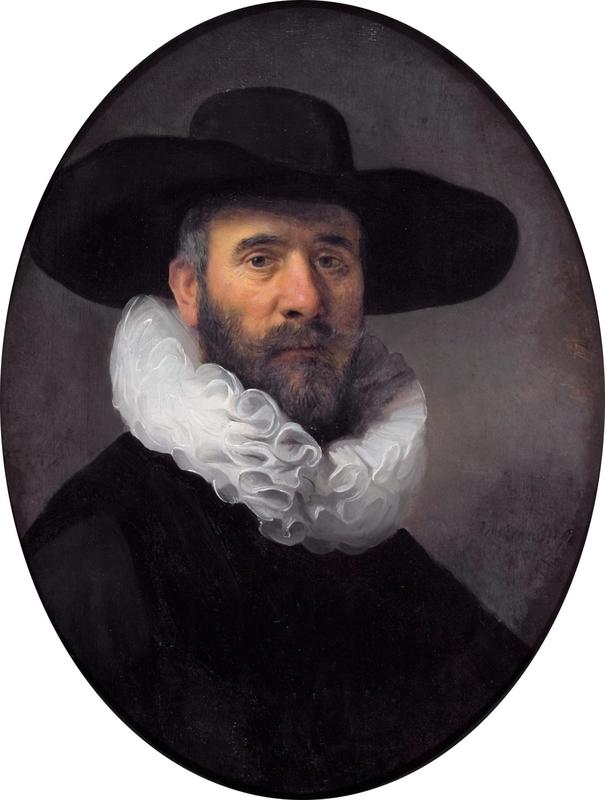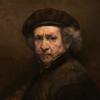More about Portrait of Dirck Jansz. Pesser

Contributor
Rembrandt was commissioned to paint the portraits of the Pesser family, prominent brewers of Rotterdam’s Remonstrant community.
Thanks to the Synod of Dort, the Remonstrants were under intense scrutiny and were being persecuted. The Pessers, two of whom were preachers, hid their brethren and were one of the lucky few families to escape the worst of it. Thanks to an introduction courtesy of prominent preacher Johannes Wtenbogaert, whose face Rembrandt was commissioned to paint a year earlier, the Pessers’ visages would be immortalized into history by the hands of a legend. This portrait of Dirck, son of Jan Pesser, was painted in 1634.
Armand Hammer, the previous owner of the Portrait of Dirck Pesser, was the head of Occidental Petroleum, the largest independent oil company in the world and described by Bob Hope as “the epitome of success” in regards to American capitalism. The source of his success? Good relations with some of America’s worst enemies: Soviet Russia and the Libyan Gadaffi regime. Hammer was responsible for, in his own words, convincing America’s enemies of “trade, rather than confrontation with the West, as the way to improve economic conditions” and also the way to bring about peace.
In 1921, the then 24 year-old graduate of the American College of Physicians and Surgeons at Columbia University heard of a typhus epidemic in Russia. Due to an interest in bacteriology and a six-month break before his internship, he went to Moscow to study and assist in disease control there. Hammer offered to buy wheat for the Soviets to address the famine responsible for fostering typhus outbreaks, and it was this decision that led Lenin to personally invite him to the Kremlin. Lenin, seeing the pitfalls of socialist economic infrastructure, wished to compete in a capitalist market, the domain of the Americans. It helped that Armand's father, Julius Hammer, not only named him after the Communist symbol, but also directly funded the Soviets with money funneled from success in selling shampoos, medical alcohol solutions, and pharmaceutical drugs in New York.
Throughout the rest of his life, Armand would go back and forth between the U.S. and Russia, convincing American businessmen to invest in Soviet assets while cozying up with the powers that be in Russia. The deal gave the Soviets much-needed supplies and means to improve their infrastructure, while Hammer made a huge profit.
Hammer again did the unthinkable in the 1970s, securing a negotiated deal with Muammar al-Gaddafi of Libya, who was still in power at the time. By securing Libyan oil, Occidental Petroleum became one of the most profitable oil companies on Earth at a time when Exxon and Mobil backed out as political tensions began to grow more hostile toward Western interests. Read: Hammer, an American-born, Jewish-raised businessman shook hands with a Muslim dictator. It’s like pigs flying or the Timberwolves ever making it to the NBA Finals. Hammer funding Libya also contributed to the rise of OPEC, forever changing the oil market.
Naturally, this made Hammer a huge target of scrutiny by politicians, government organizations, and hawkish journalists alike. Nevertheless, he was one of the most successful businessmen America ever produced and a huge contributing factor to keeping the Cold War a relatively quiet one by keeping America’s enemies complacent.
Sources
- Bomford, David. 2006. Art in the Making: Rembrandt. London: National Gallery Company.
- Epstein, Edward J. 1981. “THE RIDDLE OF ARMAND HAMMER.” The New York Times. The New York Times. November 29, 1981. https://www.nytimes.com/1981/11/29/magazine/the-riddle-of-armand-hammer….











